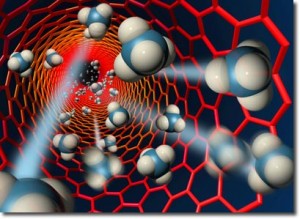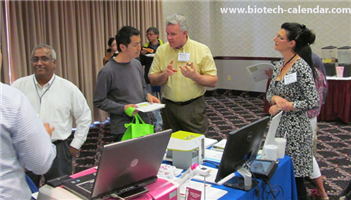Pancreatic cancer is a devastating disease with a five-year survival rate of only 5 percent, and which often goes undiagnosed until treatment options have become extremely limited.
Read MoreTags: CA, University of California Los Angeles, cancer research, California, Los Angeles, Tradeshow tips, 2015, LAVS, UCLA, Biotechnology Vendor Showcase Event, tradeshow calendar
A researcher at Rutgers University is cooking up some groundbreaking new cancer research with a little help from extra-virgin olive oil.
According to a World Health Report, over 8 million people are killed annually by some form of cancer. However, scientists have recently discovered an ingredient in extra-virgin olive oil that kills cancer cells without harming healthy cells. The ingredient, called oleocanthal, contains a compound that ruptures cancerous cells, which in turn causes the release of certain enzymes that kill the cancer cell itself.
Read MoreTags: Bioresearch, cancer research, NJ, 2015, New Jersey, BioResearch Product Faire Front Line Event, Rutgers University, Life Science, Rutgers, piscataway
Much like planning a road trip, reprogramming human stem cells relies on developing a list of sequential actions, or a “roadmap” of sorts, after which it is little more complicated than following the prescribed directions. Without an accurate roadmap for the human stem cells, however, researchers at University of California, Los Angeles had to develop their own.
Read MoreTags: CA, Stem Cells, Stem cell research, cancer research, Los Angeles, 2015, UCLA, BioResearch University, Biotechnology Vendor Showcase Event
Researchers from University of Minnesota, Twin Cities have been working with a team of researchers led by Professor Sangeeta Bhatia from MIT to successfully develop a novel approach to diagnostic testing for non-communicable diseases, such as cancers and cardiovascular diseases.
The traditional diagnostic tests for cancers or cardiovascular diseases are stressful, time-consuming and expensive because these tests lack of reliable and easily detected biomarkers that signal the presence of diseases or conditions.
The groundbreaking diagnostic test that was developed by the researchers at the University of Minnesota has only two steps. After an injection of iron nanoparticles, a urine test that uses paper strips, which look like those found in a home pregnancy kit, will be used for detecting the biomarkers for the cancer or other condition.
Researchers found that both tumors and clots contain elevated levels of certain enzymes. In clots, the enzyme thrombin is elevated and cleaves a protein in order to release the “building block” molecule of clots; in tumors, a certain type of “protease” enzyme is elevated and cleaves a different protein that acts like a mini-machete to help release cancerous cells into the bloodstream.
Researchers combined two molecules into the iron nanoparticles, which would act as a “messager” to tumors and clots. One molecular was a synthetic analog of the protein or the enzyme of tumors and clots. Connected to it was the second synthetic detecting molecule, which would be set free to signal the presence of tumors or clots and would end up in the urine.
After injecting the iron nanoparticles into the mice, the researchers collected their urine and exposed it to strips of nitrocellulose paper coated with antibodies. As the urine flowed along a strip, it encountered strips containing antibodies that recognized tags associated with the second molecule. If any strip became visible, it meant tumors or clots were present.
This novel approach of diagnosis of tumor or cardiovascular disease gives doctors an advantage to diagnose easily and earlier. It is also a cost-effective way for patients to spare them from an expensive MRI.
Many of the materials in this diagnostic test, including iron nanoparticles, have been approved by U.S. Food and Drug Administration. University of Minnesota, Twin Cities has been planning to perform clinical trials and commercialize the technology.
These cutting edge research programs make the University of Minnesota one of the leading research institutions in the nation. Researchers at the University of Minnesota are eagerly looking for the newest products and technologies to fully develop their research. Over the past five years, inventions from the University of Minnesota researchers have generated nearly $274 million in revenue for the state of Minnesota.
University of Minnesota Twin Cities is also a richly funded marketplace. The University has received 606 grants and awards of over $263 million from the National Institute of Health in 2013 in addtion of 179 grants of $67 million as of April 24th 2014.
Biotechnology Calendar, Inc. helps laboratory supply companies to get their products and technologies into the UMinn’s laboratory by providing an opportunity to gather lab supply companies and researchers together at the UMinn Twin Cities BioResearch Product Faire™ Event. The next event will be held on May 20th 2014.
Tags: 2014, cancer research, University of Minnesota Twin Cities, UMinn
Breast Cancer is one of most common cancers in American women. About 1 in every 8 women in the United States will develop invasive breast cancer during their lifetime. It is estimated that 232,340 new cases of invasive breast cancer will be diagnosed every year, and 39,620 women will die from breast cancer in 2014. It is crucial to take steps to prevent this deadly disease.
Tags: 2014, Thomas Jefferson University, cancer research, ThomJeff












